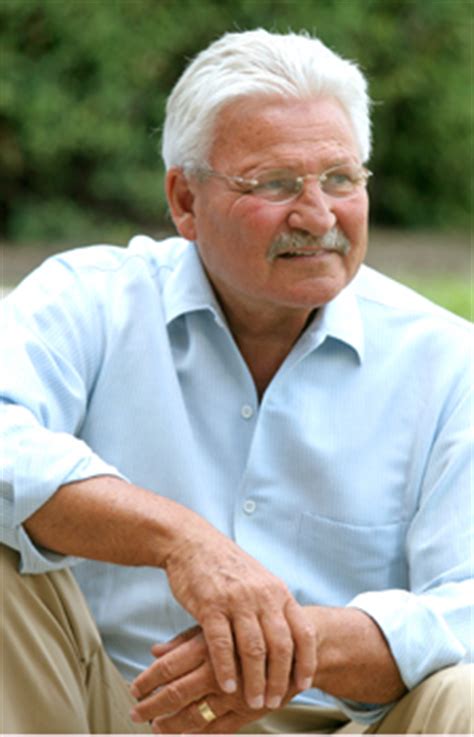A Quote by Fethullah Gulen
Tolerance, a term which we sometimes use in place of the words respect, mercy, generosity, or forbearance, is the most essential element of moral systems; it is a very important source of spiritual discipline and a celestial virtue of perfected people.
Related Quotes
Karma is the record of services. Karma is the term used in Buddhist teaching. Taoists use the term te. Christians us the term "deed." Many other spiritual beings use the term "virtue." Karma, te, deed, and virtue are the same thing but in different words. To understand karma is to understand all of these words.
No one can learn tolerance in a climate of irresponsibility, which does not produce democracy. The act of tolerating requires a climate in which limits may be established, in which there are principles to be respected. That is why tolerance is not coexistence with the intolerable. Under an authoritarian regime, in which authority is abused, or a permissive one, in which freedom is not limited, one can hardly learn tolerance. Tolerance requires respect, discipline, and ethics.
There is a documentary element in my films, a very strong documentary element, but by documentary element, I mean an element that's out of control, that's not controlled by me. And that element is the words, the language that people use, what they say in an interview. They're not written, not rehearsed. It's spontaneous, extemporaneous material. People
For man, when perfected, is the best of animals, but, when separated from law and justice, he is the worst of all; since armed injustice is the more dangerous, and he is equipped at birth with the arms of intelligence and with moral qualities which he may use for the worst ends. Wherefore, if he have not virtue, he is the most unholy and the most savage of animals, and the most full of lust and gluttony. But justice is the bond of men in states, and the administration of justice, which is the determination of what is just, is the principle of order in political society.
The antidote to hatred in the heart, the source of violence, is tolerance. Tolerance is an important virtue of bodhisattvas [enlightened heroes and heroines] - it enables you to refrain from reacting angrily to the harm inflicted on you by others. You could call this practice "inner disarmament," in that a well-developed tolerance makes you free from the compulsion to counterattack. For the same reason, we also call tolerance the "best armor," since it protects you from being conquered by hatred itself.
People with self-respect exhibit a certain toughness, a kind of moral nerve; they display what was once called *character,* a quality which, although approved in the abstract, sometimes loses ground to the other, more instantly negotiable virtues.... character--the willingness to accept responsibility for one's own life--is the source from which self-respect springs.
By "moral discipline," I mean self-discipline based on moral standards. Moral discipline is the consistent exercise of agency to choose the right because it is right, even when it is hard. It rejects the self-absorbed life in favor of developing character worthy of respect and true greatness through Christlike service.
Tolerance is an attitude of reasoned patience towards evil and a forbearance that restrains us from showing anger or inflicting punishment. But what is more important than the definition is the field of its application. The important point here is this: Tolerance applies only to persons but never to truth. Intolerance applies only to truth but never to persons. Tolerance applies to the erring; intolerance to the error.
As a Buddhist, I was trained to be tolerant of everything except intolerance. I was brought up not only to develop the spirit of tolerance but also to cherish moral and spiritual qualities such as modesty, humility, compassion, and, most important, to attain a certain degree of emotional equilibrium.
I think sometimes we can use spirituality as a vehicle to go closer to the things that frighten us and sometimes we can use it as a shield. I'm guilty of it too. I think spiritual words can do one or the other. Because when I hear people say, in a religion setting, 'Glory,' 'Praise the Lord,' 'Hallelujah,' but it doesn't mean anything, those are actually words that distance us from God, ironically enough.
Words of divine consciousness: moral exaltation; lasting feelings of elevation, elation, joy; a quickening of the moral sense, which strikes one as more important than an intellectual understanding of things; an alignment of the universe along moral lines, not intellectual ones; a realization that the founding principle of existence is what we call love, which works itself out sometimes not clearly, not cleanly, not immediately, nonetheless ineluctably.






































